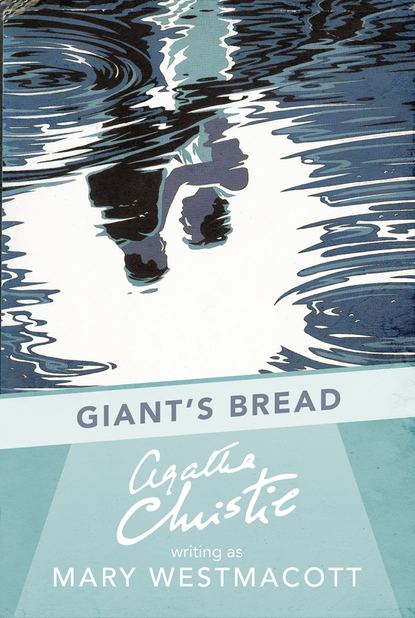По всем вопросам обращайтесь на: info@litportal.ru
(©) 2003-2025.
✖
Giant’s Bread
Автор
Год написания книги
2019
Настройки чтения
Размер шрифта
Высота строк
Поля
‘I was. I mean I did.’
‘What’s the matter, Joe?’
‘I was up a tree and he came right by underneath. I could have got him beautifully.’
‘Do you mean to say you didn’t?’
‘No.’
‘Why ever not?’
Joe’s face became very red, and she began to speak very fast.
‘I couldn’t. You see, he didn’t know I was there, and he looked—oh, Vernon! he looked so awfully lonely—as though he were simply hating things. You know, it must be pretty beastly having no one to do things with.’
‘Yes, but—’
Vernon paused to adjust his ideas.
‘Don’t you remember how we said it was all rotten?’ went on Joe. ‘People being so beastly about the Levinnes, and now we’re being as beastly as anyone.’
‘Yes, but he was beastly to us!’
‘Perhaps he didn’t mean to be.’
‘That’s nonsense.’
‘No, it isn’t. Look at the way dogs bite you if they’re afraid or suspicious. I expect he just expected us to be beastly to him, and wanted to start first. Let’s be friends.’
‘You can’t be in the middle of a war.’
‘Yes, you can. We’ll make a white flag, and then you march with it and demand a parley, and see if you can’t agree upon honourable terms of peace.’
‘Well,’ said Vernon, ‘I don’t mind if we do. It would be a change, anyway. What shall we use for a flag of truce—my handkerchief or your pinafore?’
Marching with the flag of truce was rather exciting. It was not long before they encountered the enemy. He stared in complete surprise.
‘What’s up?’ he said.
‘We want a parley,’ said Vernon.
‘Well, I’m agreeable,’ said the other boy, after a moment’s pause.
‘What we want to say is this,’ said Joe. ‘If you’ll agree, we’d like to be friends.’
They looked from one to the other.
‘Why do you want to be friends?’ he asked suspiciously.
‘It seems a bit silly,’ said Vernon. ‘Living next door and not being friends, doesn’t it?’
‘Which of you thought of that first?’
‘I did,’ said Joe.
She felt those small jet black eyes boring into her. What a queer boy he was. His ears seemed to stick out more than ever.
‘All right,’ said the boy. ‘I’d like to.’
There was a minute’s embarrassed pause.
‘What’s your name?’ said Joe.
‘Sebastian.’
There was just the faintest lisp, so little as hardly to be noticed.
‘What a funny name. Mine’s Joe and this is Vernon. He’s at school. Do you go to school?’
‘Yes. I’m going to Eton later.’
‘So am I,’ said Vernon.
Again a faint tide of hostility rose between them. Then it ebbed away—never to return.
‘Come and see our swimming pool,’ said Sebastian. ‘It’s rather jolly.’
CHAPTER 8 (#ulink_0e1795bb-345c-5b75-90eb-1a39a0cd5195)
The friendship with Sebastian Levinne prospered and throve apace. Half the zest of it lay in the secrecy that had to be adopted. Vernon’s mother would have been horrified if she had guessed at anything of the kind. The Levinnes would certainly not have been horrified—but their gratification might have led to equally dire results.
School time passed on leaden wings for poor Joe, cooped up with a daily governess, who arrived every morning, and who subtly disapproved of her outspoken and rebellious pupil. Joe only lived for the holidays. As soon as they came, she and Vernon would set off to a secret meeting-place where there was a convenient gap in a hedge. They had invented a code of whistles and many unnecessary signals. Sometimes Sebastian would be there before time—lying on the bracken—his yellow face and jutting out ears looking strangely at variance with his knickerbocker suit.
They played games, but they also talked—how they talked! Sebastian told them stories of Russia—they learnt of the persecution of Jews—of Pogroms! Sebastian himself had never been in Russia, but he had lived for years amongst other Russian Jews and his own father had narrowly escaped with his life in a Pogrom. Sometimes he would say sentences in Russian to please Vernon and Joe. It was all entrancing.
‘Everybody hates us down here,’ said Sebastian. ‘But it doesn’t matter. They won’t be able to do without us because my father is so rich. You can buy everything with money.’
He had a certain queer arrogance about him.
‘You can’t buy everything,’ objected Vernon. ‘Old Nicoll’s son has come home from the war without a leg. Money couldn’t make his leg grow again.’
‘No,’ admitted Sebastian. ‘I didn’t mean things like that. But money would get you a very good wooden leg, and the best kind of crutches.’
‘I had crutches once,’ said Vernon. ‘It was rather fun. And I had an awfully nice nurse to look after me.’
‘You see, you couldn’t have had that if you hadn’t been rich.’
Was he rich? He supposed he was. He’d never thought about it.

















